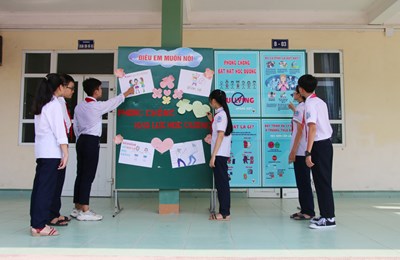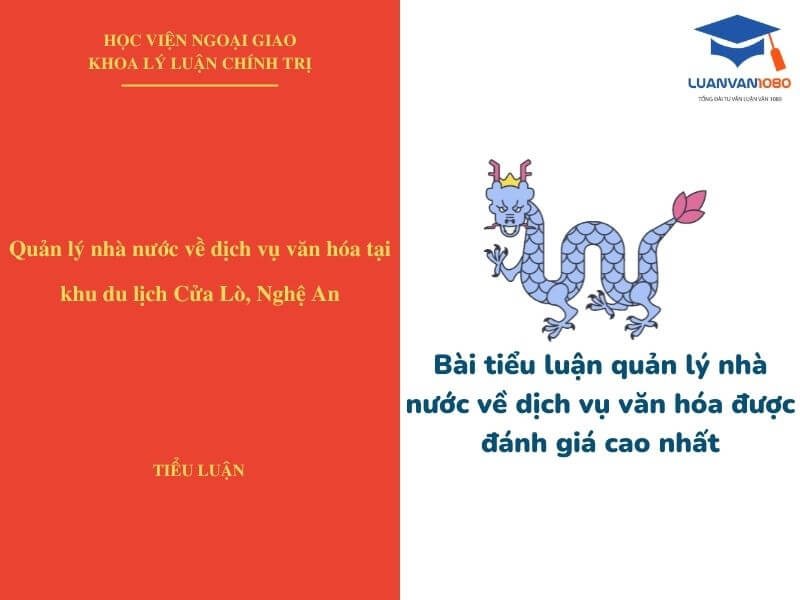Mẫu bài tiểu luận bằng tiếng Anh là một tài liệu quan trọng giúp sinh viên, học sinh hoặc những người đang cần trình bày quan điểm hoặc phân tích một vấn đề nào đó theo chuẩn mực của ngôn ngữ Anh. Việc nắm rõ cấu trúc và hiểu rõ cách viết một bài tiểu luận phù hợp sẽ giúp bạn nâng cao kỹ năng viết luận và đạt điểm cao trong các kỳ thi cũng như trong công việc học tập. Luận Văn 1080 sẽ đi sâu vào hướng dẫn chi tiết về mẫu bài tiểu luận bằng tiếng Anh và địa chỉ uy tín giúp bạn có thể thuê viết bài phù hợp yêu cầu.
1. Cách viết các phần của một bài tiểu luận tiếng Anh
Khi bắt đầu viết một bài tiểu luận tiếng Anh, điều quan trọng nhất là phải tuân thủ theo một cấu trúc rõ ràng, hợp lý để truyền tải ý tưởng một cách mạch lạc và thuyết phục. Cấu trúc chuẩn không chỉ giúp người đọc dễ dàng theo dõi nội dung mà còn thể hiện sự chuyên nghiệp trong cách trình bày của người viết, dưới đây là bí quyết viết bài luận bằng tiếng Anh đơn giản nhất
1.1. Introduction (Phần mở bài)
Phần giới thiệu đóng vai trò mở đầu, kích thích sự chú ý của người đọc và giới thiệu rõ chủ đề của bài luận. Một phần giới thiệu tốt cần ngắn gọn, súc tích, nhưng vẫn đủ để gây ấn tượng và đặt nền móng cho toàn bộ nội dung phía sau.

Mẫu bài tiểu luận bằng tiếng Anh
Bạn nên bắt đầu bằng một câu mở đầu hấp dẫn, có thể là một câu hỏi, một phát biểu nổi bật hoặc một số thống kê liên quan đến đề tài. Sau đó, trình bày rõ ràng vấn đề chính mà bạn muốn bàn luận, kèm theo lý do tại sao đề tài này quan trọng hay phù hợp với đối tượng độc giả. Đó được gọi là luận đề chính (thesis statement) — tức là quan điểm hoặc lập luận trung tâm mà toàn bộ bài tiểu luận sẽ phát triển.
>> Đọc thêm: Hướng dẫn làm tiểu luận triết học
1.2. Body (Phần thân bài)
Thân bài là phần trung tâm của bài tiểu luận, nơi trình bày rõ ràng các luận điểm, phân tích, dữ liệu và dẫn chứng minh họa cho ý kiến của bạn. Phần này đòi hỏi sự tổ chức hợp lý, rõ ràng qua các đoạn văn, mỗi đoạn tập trung vào một ý chính.
Mỗi đoạn trong thân bài nên bắt đầu bằng câu chủ đề (Topic Sentence) rõ ràng nêu ý chính của đoạn, tiếp theo là các câu hỗ trợ(Supporting Sentences), dẫn chứng thực tế, số liệu hoặc ví dụ minh họa để làm rõ ý. Bạn cần vận dụng các phương pháp lập luận như phân tích, so sánh, đối chiếu, tổng hợp để làm bài phong phú và thuyết phục hơn. Và câu kết đoạn (Concluding Sentence) để khép lại ý và kết nối sang đoạn tiếp theo.
1.3. Conclusion (Phần kết luận)
Trong phần kết luận, nhiệm vụ của bạn là tóm tắt lại toàn bộ các luận điểm đã trình bày, nhưng không được lặp lại quá nhiều nội dung cũ. Thay vào đó, hãy nhấn mạnh ý nghĩa của vấn đề, đưa ra nhận định cá nhân hoặc đề xuất giải pháp nếu phù hợp. Kết luận cần tạo dấu ấn cuối cùng, giúp người đọc cảm nhận rõ ràng về quan điểm của bạn, về kiến nghị và giải pháp. Đây còn là cơ hội để nhấn mạnh lại tầm quan trọng của đề tài, thúc đẩy người đọc suy nghĩ hoặc hành động dựa trên nội dung bài viết.
1.4. Supporting Sections (Các phần phụ trợ)
Ngoài ba phần chính, một bài luận tiếng Anh có thể bổ sung:
- Tài liệu tham khảo (References),
- Trích dẫn nguồn (Citations),
- Hoặc phụ lục (Appendices) nếu cần.
Việc trích dẫn chính xác và nhất quán theo chuẩn học thuật (APA, MLA, Chicago…) là bắt buộc để đảm bảo tính minh bạch và tránh đạo văn. Đây cũng là yếu tố quan trọng thể hiện đạo đức nghiên cứu và sự chuyên nghiệp của người viết. Đặc biệt, các nguồn trích dẫn phải rõ ràng, chính xác để đảm bảo tính hợp lệ và tránh tình trạng đạo văn.
Gợi ý từ vựng chuyển đoạn
- Mở đầu: In recent years, Nowadays, Recently
- Nối đoạn: Firstly, Moreover, In addition, On the other hand, However
- Kết luận: In conclusion, To sum up, All in all, Therefore
2. Cách chọn đề tài cho mẫu bài tiểu luận bằng tiếng Anh
Ngoài việc tìm hiểu kinh nghiệm viết tiểu luận chính xác, việc chọn đề tài phù hợp là bước quyết định thành công của cả bài viết. Một đề tài tốt cần phù hợp với khả năng nghiên cứu, sở thích cá nhân và yêu cầu của đề bài hoặc mục tiêu của bài luận. Đồng thời, đề tài phải mang tính khả thi, có đủ nguồn dữ liệu để phân tích và chứng minh.
Việc chọn đề tài cũng cần cân nhắc đến lĩnh vực bạn muốn hướng tới như giáo dục, xã hội, kinh tế, môi trường, công nghệ, v.v. Để giúp bạn dễ dàng hơn trong quá trình lựa chọn, dưới đây là một số tiêu chí và phương pháp cụ thể:
- Xác định sở thích cá nhân: Chọn những chủ đề bạn thấy hứng thú, đam mê vì sẽ dễ dàng viết và phân tích hơn.
- Nghiên cứu xu hướng: Tìm hiểu các vấn đề nóng hổi, mới mẻ trong xã hội để đề tài có tính thời sự cao.
- Đánh giá nguồn dữ liệu: Đảm bảo có đủ tài liệu, số liệu, tài nguyên để hỗ trợ cho phần phân tích và chứng minh.
- Phù hợp yêu cầu đề bài: Đọc kỹ đề bài để xác định phạm vi, dạng thức và mục tiêu của bài luận.
3. Các mẫu bài tiểu luận tiếng Anh đạt điểm cao
Trong quá trình học tập hoặc làm việc, bạn sẽ gặp nhiều dạng bài tiểu luận khác nhau tùy thuộc vào mục đích và yêu cầu của đề bài.

Các mẫu bài tiểu luận tiếng Anh phổ biến
Dưới đây là các mẫu phổ biến nhất cùng những ví dụ minh họa giúp bạn dễ hình dung và áp dụng linh hoạt vào bài viết của mình.
>> Tham khảo thêm: Dịch vụ viết tiểu luận thuê uy tín, chất lượng cao
3.1. Bài luận tiếng Anh chủ đề môi trường(Environment)
Tên đề tài: The Economic Impact of Climate Change on Agriculture in Southeast Asia
Bài mẫu:
Climate change has become one of the most pressing global challenges of the 21st century, reshaping not only the natural environment but also the foundations of economic stability. In Southeast Asia, where agriculture remains a cornerstone of livelihoods and national income, the effects of climate change are increasingly visible. Rising temperatures, unpredictable rainfall, and extreme weather patterns are already undermining the region’s food production systems. This essay argues that climate change imposes profound economic impacts on Southeast Asia’s agricultural sector through declining productivity, escalating production costs, and growing threats to food security—thereby calling for urgent adaptation and policy responses.
The first and most immediate consequence of climate change is the reduction in agricultural productivity. Southeast Asia’s key crops—particularly rice, maize, and palm oil—are highly sensitive to temperature and precipitation changes. In Vietnam and Thailand, for instance, rice yields have decreased by up to 15% during severe drought years, while the El Niño phenomenon has periodically devastated plantations in Indonesia and the Philippines. Such environmental shocks translate directly into economic losses, as agriculture accounts for approximately 10–15% of GDP in many countries across the region. Lower yields not only shrink farmers’ incomes but also reduce export revenues, affecting trade balances and rural employment.
Beyond lost productivity, climate change significantly raises the cost of agricultural production. Farmers must now invest more in irrigation, pest control, crop insurance, and drought-resistant seeds to offset unpredictable weather. These adjustments, though necessary, increase input costs and reduce profit margins. For smallholder farmers—who make up more than 70% of the agricultural workforce in Southeast Asia—such pressures are especially severe. Many face income instability and are unable to reinvest in new technology or equipment, creating a cycle of low productivity and persistent poverty. In the long term, these economic stresses can discourage younger generations from engaging in farming, threatening the sustainability of the rural economy.
The economic consequences of climate change extend far beyond the farms themselves. As agricultural output declines, food prices tend to rise, leading to inflation and reduced purchasing power for millions of households. This dynamic is particularly critical in Southeast Asia, where food expenditure accounts for a large portion of household budgets. For example, during the 2015–2016 El Niño event, rice prices surged across the region, forcing governments to increase subsidies and import more food, thus straining public budgets. Moreover, declining agricultural productivity can trigger rural-to-urban migration, increasing social inequality and putting additional pressure on urban infrastructure and labor markets. In this sense, the impact of climate change on agriculture becomes an interconnected economic challenge that affects fiscal policy, social welfare, and national development.
In conclusion, climate change represents a multidimensional economic threat to Southeast Asia’s agricultural sector. Reduced yields, rising production costs, and growing food insecurity collectively weaken national economies and endanger the livelihoods of millions who depend on farming. To mitigate these impacts, governments and regional organizations must invest in climate-resilient agriculture, including advanced irrigation systems, sustainable farming techniques, and early warning technologies. International cooperation and knowledge sharing will also be essential to enhance adaptation capacity. Ultimately, addressing the economic impacts of climate change on agriculture is not just an environmental necessity—it is a strategic imperative for economic stability and long-term food security in Southeast Asia.
3.2. Bài luận tiếng Anh chủ đề Giáo dục(Education)
Đề bài: Comparing the Academic and Personal Benefits of Studying Abroad and Studying at Home
In today’s interconnected world, higher education offers students the choice to pursue their studies either in their home country or abroad. Each path provides unique opportunities that shape academic growth and personal development. While studying abroad broadens one’s cultural awareness and global perspective, studying at home offers stability and affordability that many learners value. This essay compares the academic and personal benefits of both options to highlight how each contributes differently to a student’s education and life experience.
From an academic standpoint, studying abroad allows students to experience diverse teaching methods, access advanced research facilities, and engage with international peers. Universities in countries such as the United States, the United Kingdom, or Australia often emphasize independent thinking and practical learning, which help students develop critical and analytical skills.
In contrast, studying at home provides familiarity with the local curriculum, language, and context, which can lead to a deeper understanding of national issues. Moreover, education at home is usually more affordable, making it accessible to a wider range of students without the financial strain of tuition fees and living expenses abroad.
On a personal level, studying abroad promotes independence, adaptability, and cross-cultural communication skills. Living in a new environment encourages students to manage challenges such as cultural adjustment and homesickness—valuable experiences that build resilience and confidence. However, studying in one’s home country offers emotional security and stronger family and community support. Students can maintain close relationships, benefit from familiar customs, and focus more on academic goals rather than cultural adaptation.
In conclusion, both studying abroad and studying at home bring distinct academic and personal advantages. Studying abroad expands global exposure and personal growth, while studying at home ensures financial stability and social comfort. The choice ultimately depends on individual goals, financial circumstances, and career aspirations. A well-balanced perspective recognizes that true educational success lies not in location, but in the learner’s willingness to grow, adapt, and make the most of available opportunities.
3.3. Bài luận tiếng Anh chủ đề Sức khỏe(Health)
Đề tài: Should Junk Food Advertising Be Restricted to Protect Public Health?
The increasing prevalence of obesity and diet-related diseases has sparked a global debate about the role of junk food advertising. Fast food companies often target children and teenagers through colorful, persuasive advertisements that normalize unhealthy eating habits. While advertising is a legitimate marketing tool, its influence on consumer behavior—especially among young audiences—raises serious ethical concerns. This essay argues that junk food advertising should be restricted to protect public health and reduce the long-term burden of lifestyle diseases.
Advertising has a powerful psychological impact, shaping perceptions of what is desirable or “normal.” Junk food ads frequently use emotional appeal, celebrity endorsements, and cartoon characters to attract children. Studies by the World Health Organization show that exposure to such advertisements significantly increases the likelihood of consuming high-calorie, low-nutrient foods. This results in unhealthy eating patterns that persist into adulthood, contributing to obesity and related diseases such as diabetes and heart problems.
From an ethical standpoint, it is unfair for large corporations to exploit vulnerable audiences who lack the maturity to make informed choices. Restricting junk food advertising would help reduce manipulative marketing tactics and encourage more responsible consumption. Moreover, the long-term economic burden of treating obesity-related illnesses far outweighs the short-term profits of the fast food industry. Governments, therefore, have both a moral and fiscal responsibility to regulate advertising in order to safeguard public health.
In summary, unrestricted junk food advertising poses a significant threat to public health by promoting poor dietary habits and increasing healthcare costs. Implementing stricter advertising regulations—especially for content targeting children—is essential to protect future generations. Promoting public awareness and supporting healthier alternatives can help balance economic interests with societal well-being. Ultimately, protecting citizens’ health should take precedence over corporate marketing freedom.
4. Liên hệ đơn vị viết tiểu luận bằng tiếng Anh uy tín theo yêu cầu
Trong quá trình học tập, có thể bạn gặp phải những đề bài quá phức tạp hoặc thời gian hạn hẹp khiến việc tự viết bài trở nên khó khăn. Lúc này, việc tìm đến các đơn vị viết tiểu luận bằng tiếng Anh uy tín là giải pháp hợp lý giúp bạn tiết kiệm thời gian, đảm bảo chất lượng và đúng tiến độ.

Liên hệ đơn vị viết tiểu luận bằng tiếng Anh uy tín theo yêu cầu
Luận Văn 1080 là một trong những địa chỉ đáng tin cậy hàng đầu trong lĩnh vực dịch vụ viết tiểu luận, dịch vụ viết luận văn thuê bằng Tiếng Anh, nghiên cứu khoa học bằng tiếng Anh và tiếng Việt. Với đội ngũ chuyên gia giàu kinh nghiệm, kiến thức đa dạng từ các lĩnh vực như giáo dục, kinh tế, xã hội, kỹ thuật đến công nghệ, chúng tôi cam kết đem đến sản phẩm chất lượng, đáp ứng mọi yêu cầu khắt khe nhất. Nếu bạn đang cần tìm kiếm một địa chỉ uy tín để nhờ viết bài tiểu luận bằng tiếng Anh, hãy liên hệ ngay với Luận Văn 1080 để được tư vấn miễn phí. Chúng tôi sẵn sàng giúp bạn lựa chọn đề tài phù hợp, xây dựng cấu trúc bài viết tối ưu, và hoàn thiện bài luận đúng hạn với chất lượng cao nhất.
Thông tin liên hệ:
Hotline: 096 999 1080
Email: luanvan1080@gmail.com
Địa chỉ:
- 275 Nguyễn Trãi – Thanh Xuân – Hà Nội
- 25 Tiên Sơn 15 – Hòa Cường Nam – Hải Châu – Đà Nẵng
- 16 Đường B2 – KDC Hưng Phú 1 – Cái Răng – Cần Thơ
- 35 Lê Văn Chí – Phường Linh Trung – Thủ Đức – TPHCM


 14 Tháng 1, 2026
14 Tháng 1, 2026 Share
Share










